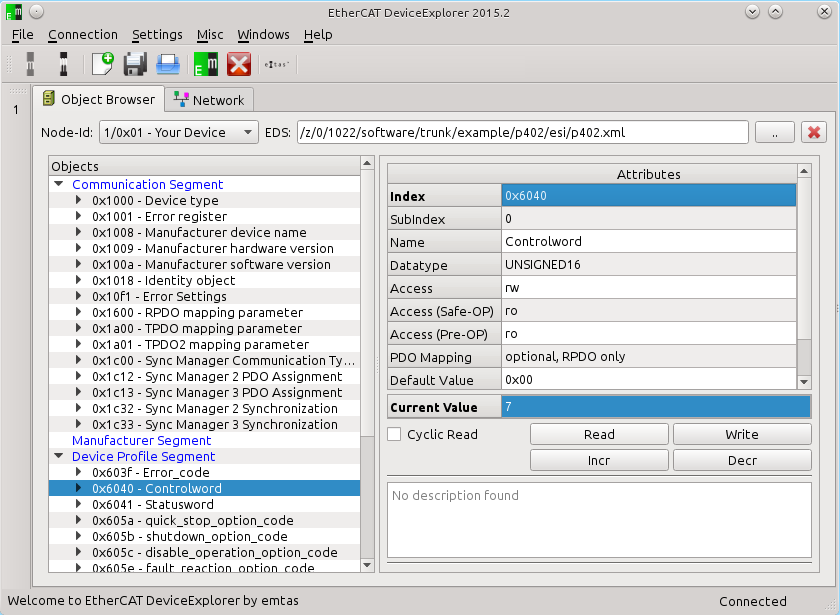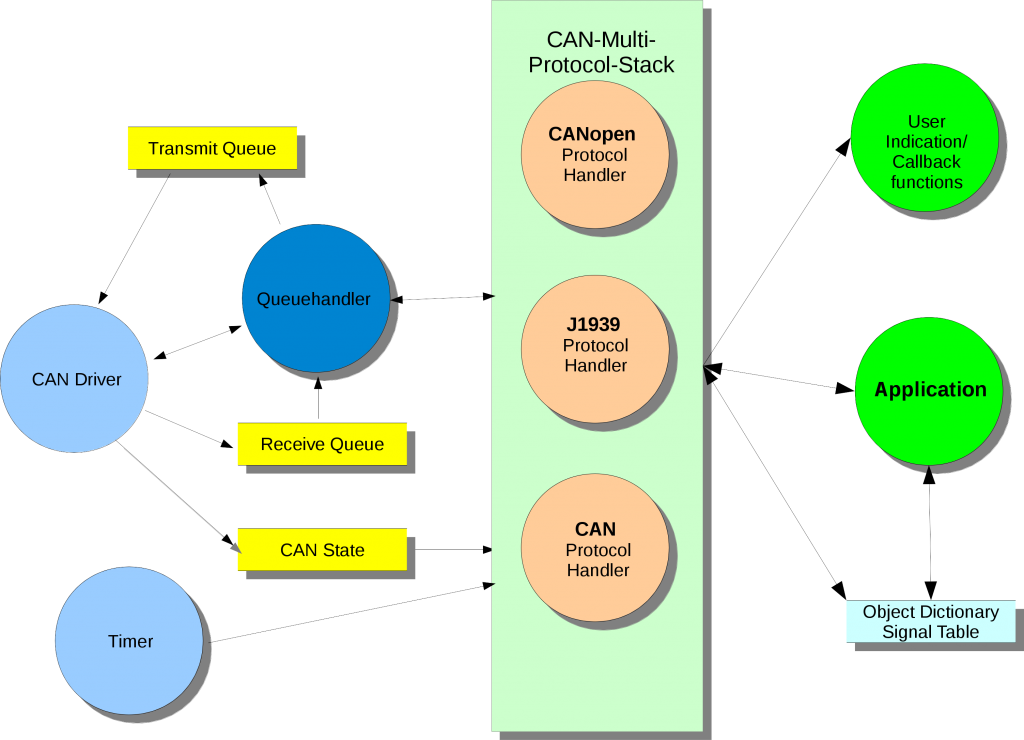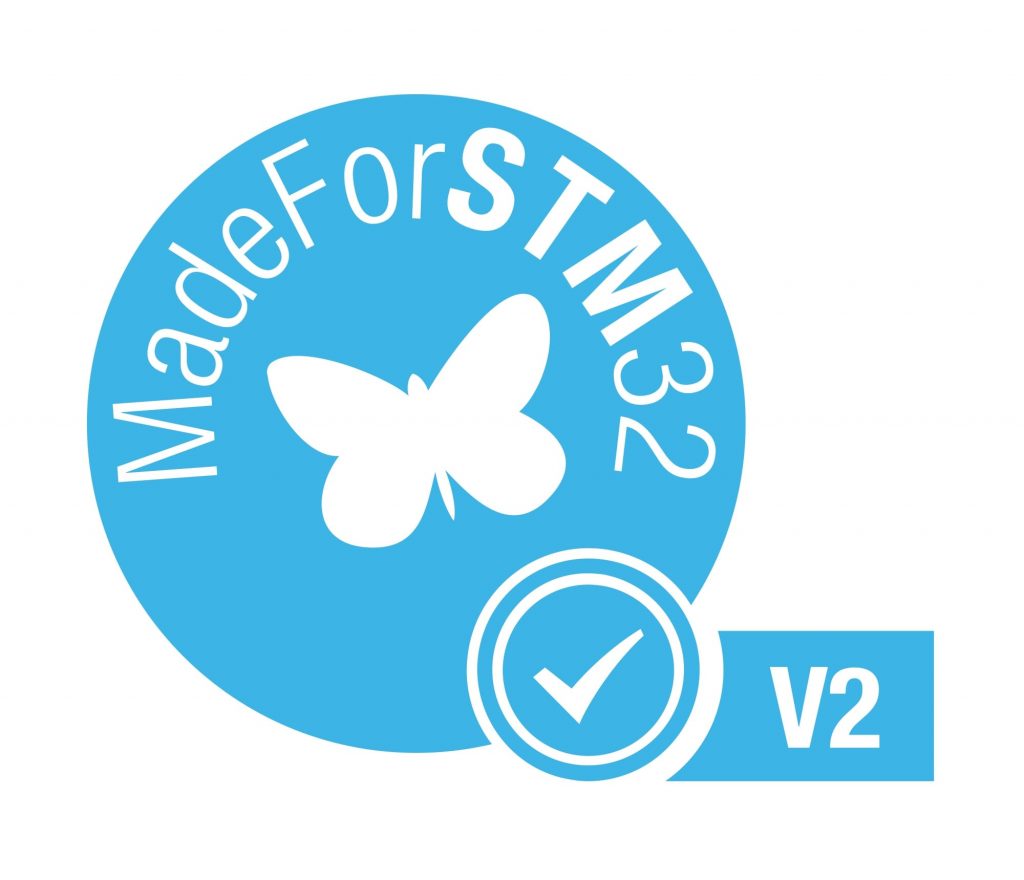emotas embedded communication GmbH – your embedded solution partner
|
emotas embedded communication GmbH, located in Merseburg in the heart of Germany is one of the leading supplier for CANopen and EtherCAT protocol stacks and tools. emotas‘ engineers are active in the standardization of these protocols and the protocol stacks and tools from emotas are used by a many embedded developers world wide. Additionally, emotas carries out development of customer specific software development for both embedded target and as well PCs and smart phones. A summary of all products and services can be found at the company’s web site. |
CANopen Stacks and Tools
Engineers from emotas are working with CANopen for more than 20 years and this experience is reflected in our CANopen stacks and tools. The CANopen stack is available in 3 variants:
Each variant covers a specific set of CANopen features and can be extended by various optional modules and profile support packages. |
|
The stack is written in ANSI-C and delivered as source code, which is compliant with MISRA-C. It can be used with our without operating systems and the most common license type is a site license which grants the customer the right to use it an one development site for an unlimited number of devices without any additional fees. |
|
Each CANopen stack is delivered with a single-user license of the CANopen DeviceDesigner. It is a easy-to-use tool to configure the stack and to design the object dictionary of the CANopen application. Based on CANopen profiles and user input the CANopen DeviceDesigner creates the object dictionary and initializing functions in C, the electronic data sheet in EDS and XDD format and a device documentation in HTML. Additionally the CANopen DeviceDesigner configures the CANopen stack and CANopen driver based on the device characteristics. |
|
In addition to the CANopen DeviceDesigner, which „only“ designs a single CANopen device, the CANopen NetworkDesigner is able to design and configure complete CANopen networks. It generates the source code and configurations for all devices including signal linking and communication relationships. |

|
|
The user can define signals with specified data types and transmission settings and tool generates the required PDO or MPDO communication settings. It also takes care of all Heartbeat and Emergency connections between all nodes in the network. So this tool is very useful for the development of complete CANopen networks. A simulation of CANopen devices on a PC is also integrated into the tool. Not yet available devices and process inputs such as digital in, temepature sensors or other can be simulated with values. |
|
|
In order the test the CANopen applications the CANopen DeviceExplorer by emotas is the tool of choice. The CANopen DeviceExplorer provides CANopen master functionalities and allows the analysis and configuration of CANopen devices. Information about each CANopen device are read from the electronic data sheet of the device or they can be scanned directly from the device. Using standardized device configuration files (DCF) device configurations can be saved or imported. The built-in scripting capability using JavaScript allows users to create their own test and control applications with only little effort. As all other tools, it is available for both Windows and Linux. |
| A CANopen compliant bootloader and an update tool complete our CANopen portfolio. |
EtherCAT Stacks and Tools
| EtherCAT is one of the most important industrial Ethernet protocols. Our EtherCAT Slave Framework provides a well-defined API to develop EtherCAT slave devices. It uses the EtherCAT Slave Stack Code by Beckhoff and extends it by a large set of additional functions. The EtherCAT Slave Framework works in general on all targets that are supported by the Beckhoff Slave Stack Code, but it has been adapted in specific for Microchip’s LAN9252 and Infineon’s XMC4800. |
|
The framework also comes with a license of our EtherCAT DeviceDesigner. This tool is an easy to handle to for a fast and cost-saving development of EtherCAT CoE devices. With a few clicks the EtherCAT DeviceDesigner generates
It is tailor made to work with both the emotas EtherCAT Slave Framework and the EtherCAT Slave Stack Code by Beckhoff as well. |
|
The EtherCAT portfolio is completed by the EtherCAT DeviceExplorer. It is a versatile EtherCAT Master tool useful for development and testing of EtherCAT slaves. The highlights of the tool are:
|
 |
| It run on standard Windows or Linux PCs with normal Ethernet cards. |
Additional Products and Services
|
Besides CANopen and EtherCAT emotas offers stacks and tools for EnergyBus and J1939. Multiple of these CAN based protocols may also be combined in one device using the CAN MultiProtocol Stack . |



